Medical Students Present Summer Research Findings
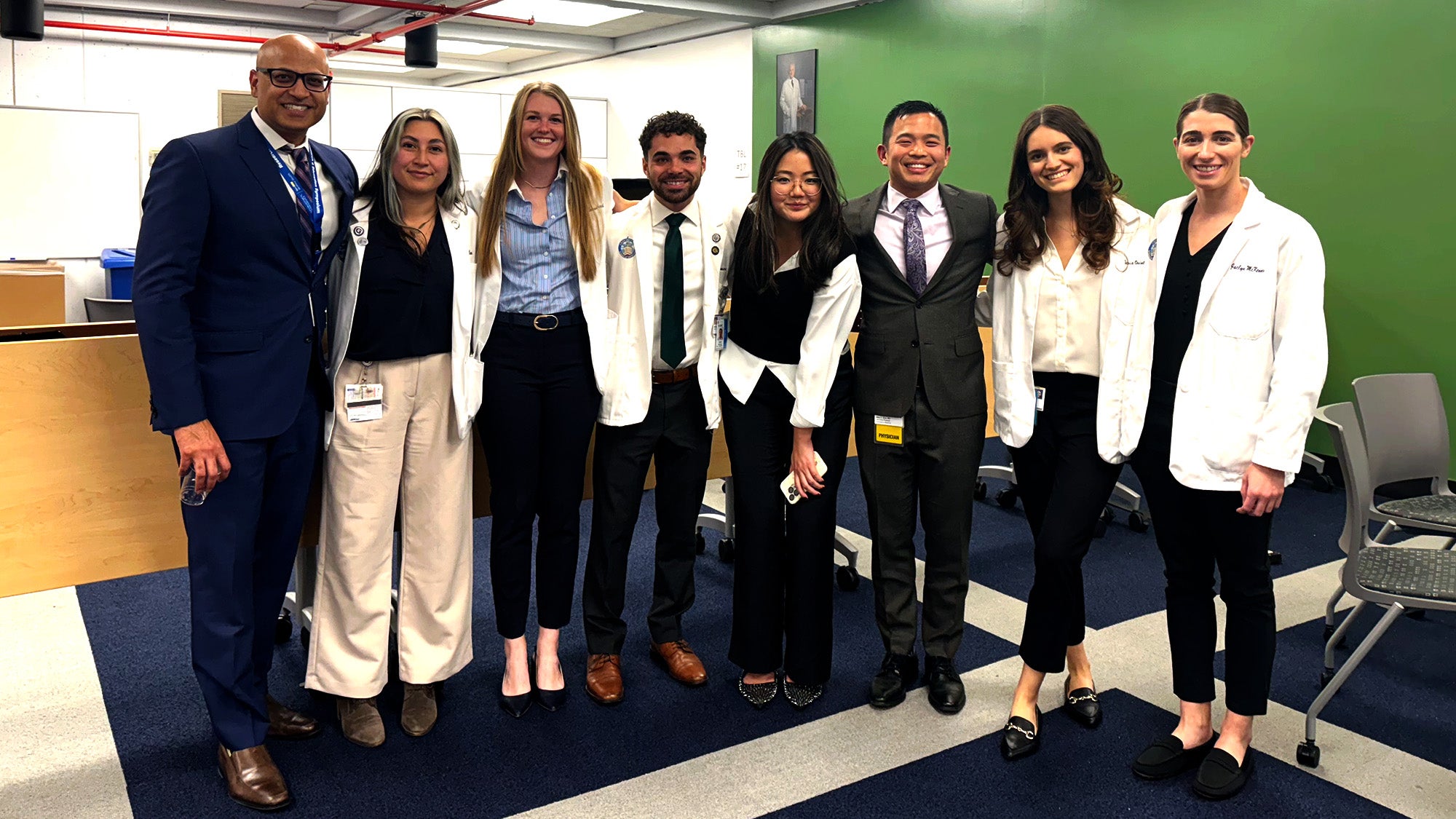
Posted in News Stories | Tagged MedStar Health Medical Student Scholars, student experience, student mentorship, student research
(October 31, 2024) — Just over 130 School of Medicine second-year students presented their summer research findings at the annual capstone presentation event — with more than 65 of them from the 2024 MedStar Health Medical Student Scholars program.
The MedStar Health program brings together Georgetown University medical school faculty working across the MedStar Health system as mentors for the participating students. Launched more than a decade ago, the program is one of the earliest and most robust representations of the Georgetown University-MedStar Health academic health system partnership.
By conducting research, medical students are able to apply a scientific lens and understand how to better digest research in their fields of practice, according to program director Munish Goyal, MD, FACEP.
“When they graduate from medical school, patients are going to trust their judgment,” explains Goyal, professor of emergency medicine and chair of MedStar Health Research Institute’s Institutional Review Board. “I want them to learn the nuances of the research process so they can better digest data and inform their patients. That’s my hope for everybody.”
MedStar Health provides significant summer funding for scores of students. Other research opportunities include the Mitchell Research Scholars program, research conducted as part of the population health longitudinal academic track, and the Area Health Education Centers (AHEC) scholars program.
This year, mentors and students gathered in the Preclinical Science Building GA 2/4 for the opening event.
“I commend your pursuit of curiosity for the betterment of human health,” said Norman J. Beauchamp Jr., MD, MHS, executive vice president for health sciences and the medical school’s executive dean. “I was also so very pleased to learn how many of our faculty take time to mentor all of you — more than 90 Georgetown clinicians from 25 specialties were involved this year in this important effort.”
Kristi Graves, PhD, professor of oncology, delivered the Sarah Stewart Lecture, followed by closing comments from Neil J. Weissman, MD, chief scientific officer for MedStar Health. “You are the future of health care, and integrating your research experience into your education will allow you to become lifelong learners,” he said. “We are trusting you to move health care forward and advance the health and well-being of all people.”
The students and mentors then moved to Dahlgren Memorial Library for moderated oral presentations.
As part of the application process for the research projects, faculty outline research opportunities and students then rank their selection to be matched. Physician-mentors work with the students over the course of the project, culminating in the capstone presentation.
Many of the students will continue their research and present it as their independent scholarly project in the spring of their fourth year, a requirement for all students.
The organizers would like to thank all faculty mentors and the many donors who make this opportunity possible.
Scenes From the Oct. 17 School of Medicine Summer Research Capstone Presentations
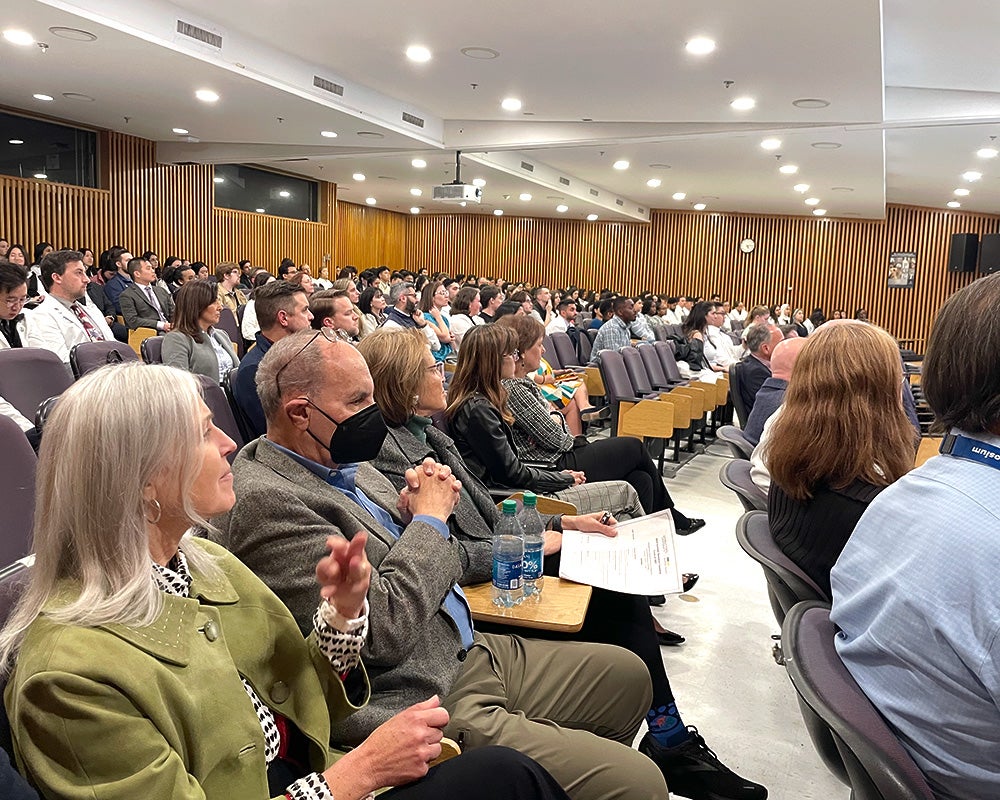
Mentors, participants and guests gathered for the Sarah Stewart lecture and opening remarks
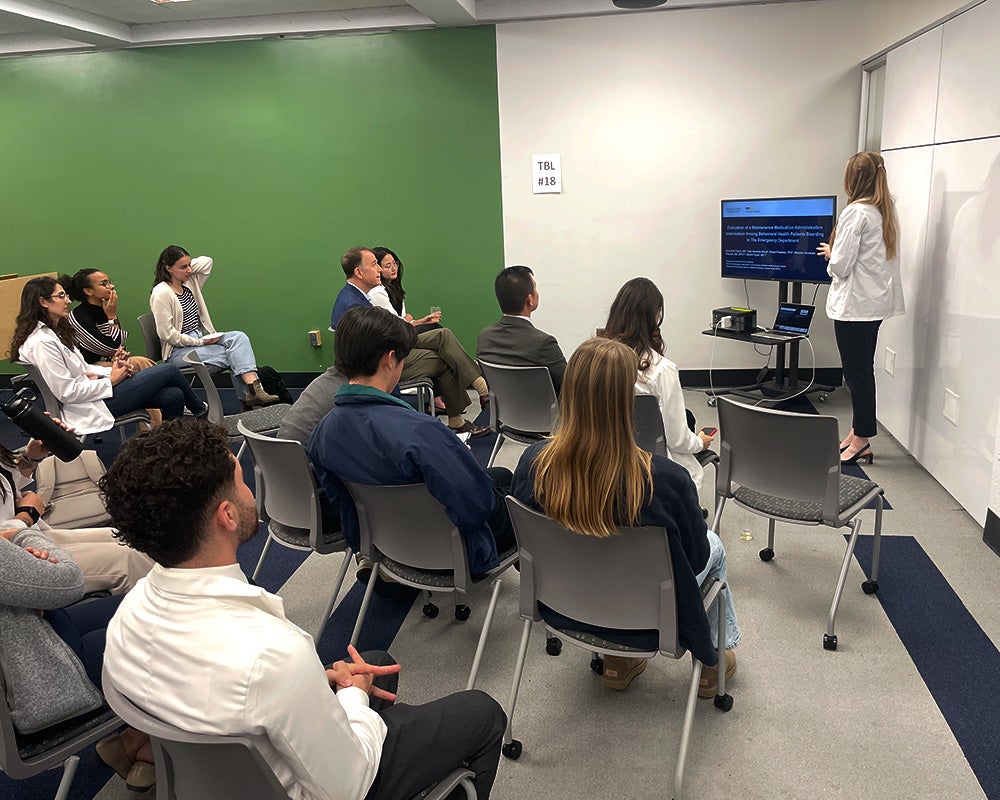
Students were divided into small groups to present the 130+ research projects in DML. Pictured is Savannah Creed (M’27) giving her talk.
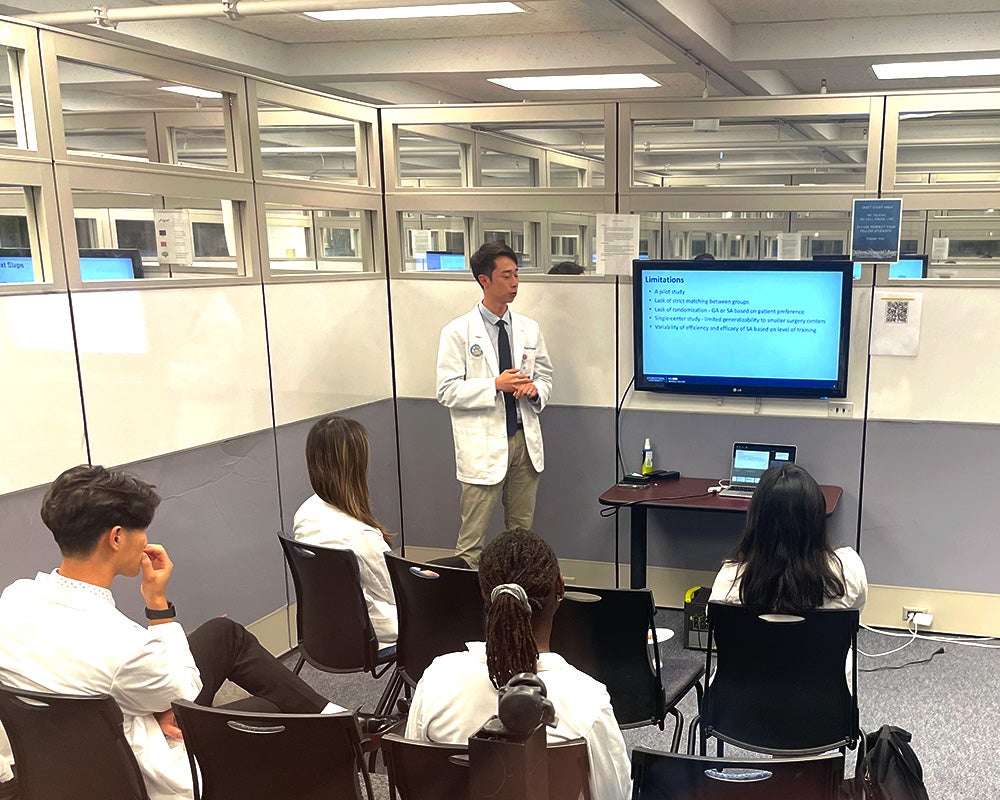
The students presented their research electronically, moving away from the large poster format of years past.
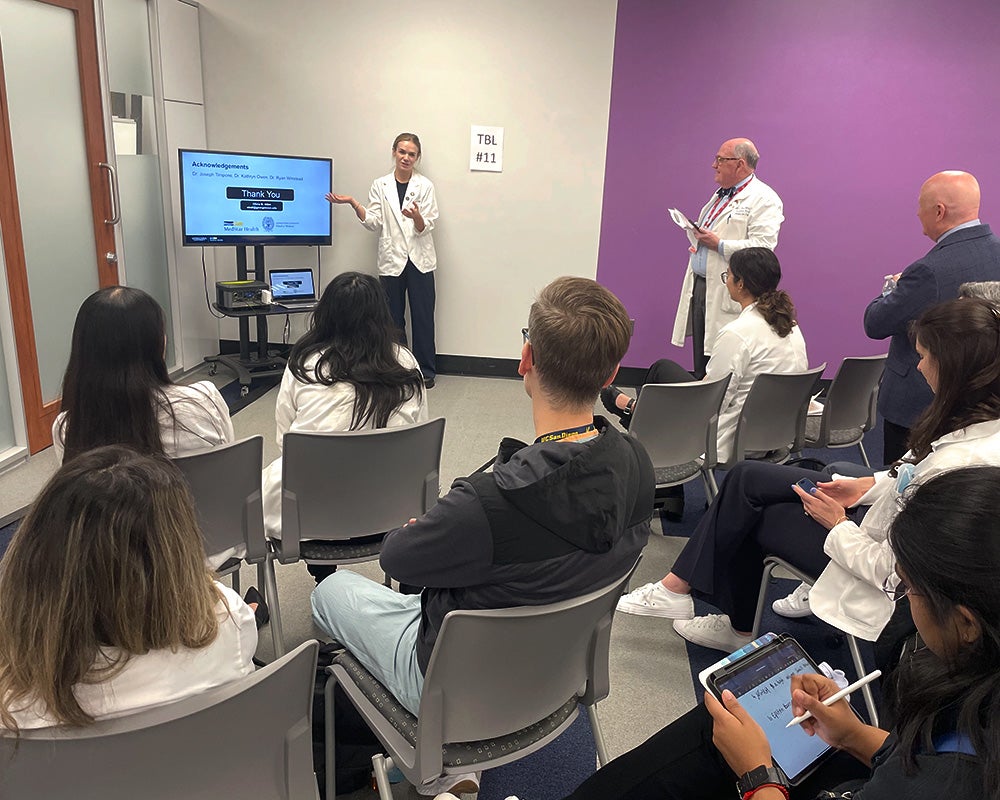
Stephen Ray Mitchell, MD, dean emeritus and namesake of the Mitchell Research Scholars, provided guidance during Olivia Allen’s (M’27) presentation.
